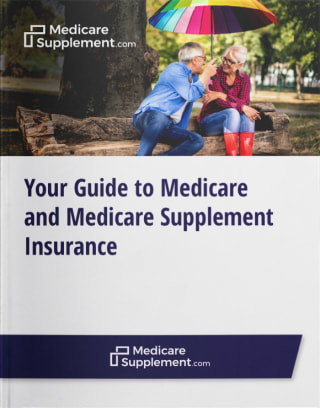Typically, Medicare does not cover medicine. However, there are exceptions to this rule. For instance, drugs that are administered during inpatient hospital treatment may be covered by Medicare Part A.
If Medicare Part A or Part B covers a medicine you need, a Medicare Supplement (Medigap) plan can help pay for your medicine by covering some of your out-of-pocket Medicare costs like deductibles, copays, coinsurance and more.
Medicare Part D prescription drug plans are sold by private insurance companies and cover many retail prescription medicines.
You can compare Part D plans available where you live and enroll in a Medicare prescription drug plan online when you visit MyRxPlans.com.
 Medicare Part D plans cover retail prescription medicines.
Medicare Part D plans cover retail prescription medicines.
When Will Original Medicare Pay for Medicine?
Original Medicare is made up of Part A (hospital insurance) and Part B (medical insurance).
Part B of Medicare can include coverage for the following types of outpatient medication:
-
Antigens
-
Injectable osteoporosis drugs
-
Injections and oral medicine for the treatment of End-Stage Renal Disease
-
Injections of blood clotting factors to treat hemophilia
-
Certain nutrients for intravenous or tube feeding
-
Intravenous Immune Globulin (IVIG) for the treatment of primary immune deficiency disease
-
Vaccinations for the flu, Hepatitis B and Pneumococcal disease. Other vaccines may be covered when directly related to the treatment of an injury or illness.
-
Transplant (or immunosuppressive) drugs
-
Oral cancer drugs
-
Oral anti-nausea drugs
How Much Do Prescription Drugs Cost With Original Medicare?
Original Medicare doesn't typically cover retail prescription drugs. If Part A or Part B does cover your medicine, you should expect the following costs:
-
For prescription drugs received in a doctor’s office or pharmacy, Medicare Part B enrollees will typically be responsible for 20% of the Medicare-approved amount for the drug (once they meet their Part B deductible). Drugs that are received by a hospital outpatient require a copayment that can vary in cost.
-
Medicare Part A covers certain prescription drugs related to pain relief and symptom control during hospice care. These drugs require a copayment of no more than $5.
A Medicare Supplement Insurance plan can help cover these out-of-pocket Medicare costs.
Medicare Part D Plans and Some Medicare Advantage Plans Cover Medicine
Medicare Part C and Part D also offer drug coverage in various forms.
-
Medicare Part D consists of an optional collection of prescription drug plans that can be used in combination with Original Medicare.
Each drug plan will vary in regards to the drugs that are covered, the amount at which they are covered and the overall cost of the plan. Medicare Part D plans may come with premiums, deductibles, copayments and coinsurance.
As mentioned above, you can compare Part D plans available where you live and enroll in a Medicare prescription drug plan online when you visit MyRxPlans.com.
-
Medicare Part C, also known as “Medicare Advantage,” is a collection of plans that offer the same coverage as Original Medicare while also offering additional benefits that vary by plan.
Medigap Plans Can Help Pay Original Medicare Costs for Covered Medicine
An additional way to save money on medication through your Medicare coverage is with a Medicare supplement (or “Medigap”) plan.
These plans are used in combination with Original Medicare to provide coverage for out-of-pocket costs such as deductibles, copayments and coinsurance.
For example, if Medicare Part B covered your medicine used for cancer treatments, you would typically have to pay out of pocket for your Part B coinsurance costs. All 10 of the standardized Medigap plans available in most states help pay for these costs.
A licensed agent can help you decide on a Medicare option that works for you. Call today to speak with a licensed agent and compare the Medigap plans that are available where you live.




